deep dives with edgard: modern challenges & the path forward for puerto rico
unraveling the island's triple crisis: economy, maria, and the fight for self-determination
tl;dr: welcome to the latest installment of my deep dive into puerto rico. the island faces a perfect storm of economic collapse, hurricane recovery, and political limbo. from promesa's austerity to maría's devastation, the island's resilience is being tested like never before. the fight for decolonization intensifies, challenging america to live up to its democratic ideals.
also, remember to let me know in the poll at the end how you liked this! (or didn’t.)

hola mi gente,
bad bunny, the island's musical powerhouse, recently broke down on el tony pregunta's podcast, his raw emotion cutting through the persona many come to expect.
welcome back, mi gente, to our deep dive series on la isla del encanto, where even our biggest stars can't escape the weight of our collective pain.
if you've been with us from the start, you've journeyed through centuries of colonization, witnessed the birth of our complex relationship with the united states, and felt the pulse of a people yearning for self-determination. but today, we're diving into the heart of puerto rico's modern crucible, where the echoes of our past collide with the harsh realities of our present.
bad bunny's tears aren't just about personal anguish – they're a mirror reflecting the frustration of millions. he got emotional. as he pleaded young boricuas to vote, to take control of their destiny, i couldn't help but think of the flickering lights across the island, crumbling schools, and the fact that some places don’t even have working local hospitals (still, in 2024). some people in puerto rico right now still don’t have power from a storm in august 2024 that went past the island but didn’t hit it directly.
our island stands at a crossroads, mi gente. an economy that is structurally still very unsound, the lingering trauma of hurricane maría, and a political status that grows more untenable by the day – these are the forces shaping puerto rico's present and future.
but as bad bunny's emotional plea reminds us, this isn't just about politics or economics. it's about the soul of a people, the dreams of our youth, and the future we dare to imagine for ourselves.
so grab your cafecito, silence your phone, and prepare to journey deeper into the complexities of modern puerto rico. because understanding this struggle isn't just about knowledge – it's about justice, dignity, and the future of 3.2 million american citizens who, like bad bunny, are tired of watching their homeland struggle in the shadows.
check out the previous deep dive episodes: (5) puerto rico's quest for political status | (4) puerto rico's economic exploitation and migration | (3) puerto rico in the 20th century | (2) the colonization of puerto rico | (1) the start of the series!
episode 6: modern challenges and the path forward
well, where do i even start? operation bootstrap, that grand plan to industrialize faster than you can say "mofongo," left puerto rico with an economic house of cards that would make even the shadiest wall street banker blush.
for decades, we were the darling of u.s. manufacturers thanks to some sweet tax breaks from section 936 of the irs code.
but in 2006, congress decided to pull the rug out from under puerto rico and end the tax breaks. suddenly, those tax incentives dried up faster than a puddle in the san juan sun.
factories closed. jobs vanished. and before you could say "¿qué pasó?", the american dream for many boricuas meant a one-way ticket to orlando or the bronx.
but wait, it gets worse. the government of puerto rico, in its infinite wisdom, decided to plug economic holes with debt. by 2015, puerto rico was drowning in over $70 billion of red ink. that's billion with a "b", mi gente. to put it in perspective, that's like every single person on the island owing $20,000 – newborns included!
promesa: the "solution" nobody asked for
enter promesa, congress's idea of a financial hail mary. picture this: an unelected board (lovingly dubbed "la junta" with all the warmth of a root canal) swooping in to "fix" our finances. the result? austerity measures harsher than your abuela's chancleta.
schools closed. pensions slashed. public services stretched thinner than the last piece of lechón at a family party. all while ensuring those wall street bondholders don't miss a single interest payment. it's like trying to cure a patient by bleeding them dry – spoiler alert: it doesn't work. and as the cherry on top, this board isn't elected by puerto ricans. it's appointed by congress. so much for self-governance, right?
promesa has become a symbol of puerto rico's colonial status, a stark reminder that ultimately, the island's fate is decided in washington, not san juan.
hurricane maría: the storm that changed everything
on september 20, 2017, maría didn't just make landfall – it made history. entire communities wiped out. an island plunged into darkness. a death toll that still haunts us. officially 2,975, lives were lost – a number that came only after public outcry forced a recount. but ask any puerto rican, and they'll tell you the true cost was far higher. a harvard study estimated up to 4,645 deaths.
each number represents a story, a family torn apart, a future stolen.
the devastation:
100% of the island lost power, with some areas dark for nearly a year
95% of the population lost cell service, leaving families desperate for news
over 306,126 homes damaged or destroyed, almost a third of the total housing stock
the federal response? a case study in inequality. while mainland disasters saw swift action, puerto rico waited. and waited.
president trump's paper towel tossing became a symbol of callous indifference. fema's own after-action report admitted to severe understaffing and lack of preparation. critical aid was delayed time after time after time.
i will never forget the pain and anxiety of knowing my relatives in puerto rico couldn't reach us or anyone stateside for weeks after the hurricane. they also could not reach other relatives on the island, especially my uncles and cousins that lived in rural parts of the island. those weeks of silence are etched in my memory. i was living in washington, dc at the time. i couldn’t do anything but to stand by and hope that someone would be able to find reception somewhere to send a whatsapp message.
my uncle ricardo, my mom’s brother, lived in a mountainous area of juncos at the time. we knew that there had been rockslides and landslides. if you’re puerto rican… i don’t have to tell you that we’re familiar with mudslides being traumatic national events. but no one was prepared for this. the aftermath left us anxious and helpless, unable to reach him or even know anything about whether he was okay or not.
for weeks, communication was impossible; the devastation in juncos extensive and terrifying. as soon as it became safe enough, a convoy of family members, fraught with worry but clinging to hope, made their way through the chaos to juncos. what they found was a relief yet heartrending—my uncle and his family were alive, shaken but safe. however, the losses they suffered were profound. not to mention the trauma everyone had just endured surviving this hellscape of a storm.
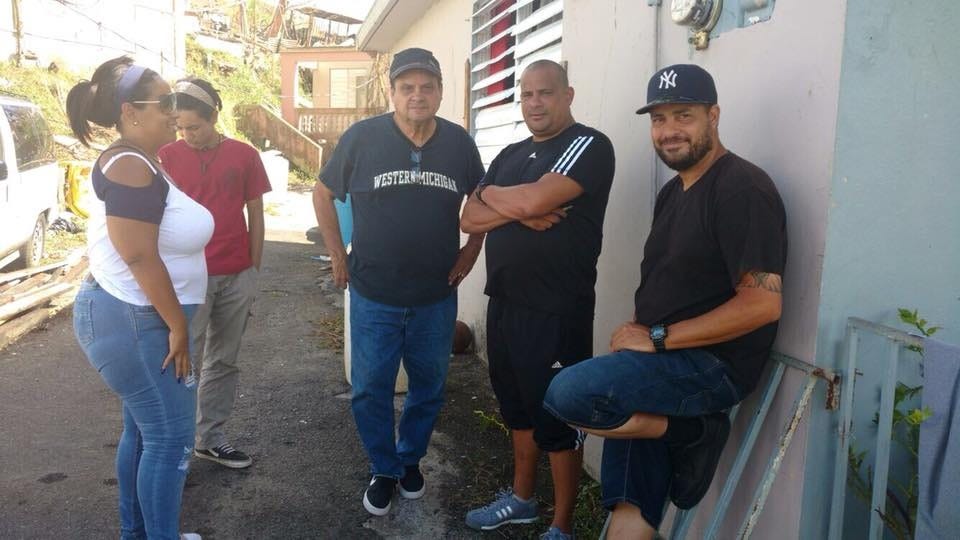
this is now the enduring heartache for every puerto rican in the diaspora, forever condemned to watch from a distance as the island faces the wrath of hurricanes and storms.
but from this darkness, mi gente, came light. puerto ricans showed a resilience that would make our taíno ancestors proud. community kitchens sprouted like yuca after a rainstorm. neighbors became lifelines. artists turned rubble into resistance. maría exposed our vulnerabilities, sure, but it also revealed our strength.
mainland politicians debated puerto rico's status while people died for lack of insulin and clean water. the island became a political football in the american consciousness, with little regard for the 3.2 million american citizens suffering in darkness. mitch mcconnell once called puerto rican statehood “full bore socialism”… are you kidding me, mitch? exagerao’. mitch, nothing is more “full bore socialism” but for only the rich than your trickle down economics bullshit.
maría exposed puerto rico's vulnerabilities – crumbling infrastructure, an unstable power grid, and the harsh realities of second-class citizenship.
as we rebuild, the lessons of maría linger. every flickering light, to this day, is a reminder. maría wasn't just a hurricane. it was a wake-up call – to puerto ricans and to all of america. the question now is: is america finally ready to answer it?
the decolonization drumbeat: puerto rico's ongoing fight for self-determination
the fight for puerto rican self-determination isn't new – it's been the heartbeat of the island's politics since the grito de lares in 1868. this failed uprising against spanish colonial rule set the stage for a centuries-long struggle that continues to this day.
in 2024, the call for decolonization is reaching a fever pitch, echoing through every facet of puerto rican society.
the status quo: understanding puerto rico's current political limbo
puerto rico's relationship with the united states is complex and controversial. as an unincorporated territory, the island exists in a political gray area:
puerto ricans are u.s. citizens but can't vote for president
they have one non-voting representative in congress
federal laws apply, but puerto rico has no say in their creation
this arrangement, born out of the 1917 jones-shafroth act, has long been a source of frustration for many puerto ricans.
the referendum rollercoaster: six votes and counting
since 1967, puerto rico has held six status referendums:
despite these referendums, congress has consistently ignored the results, leaving puerto ricans feeling voiceless in their own future.
the summer of discontent: ricky renuncia and political awakening
the summer of 2019 marked a turning point in puerto rican politics. the "ricky renuncia" protests erupted after leaked chats revealed then-governor ricardo rosselló and his inner circle mocking hurricane victims and using misogynistic language. for two weeks, hundreds of thousands took to the streets, demanding rosselló's resignation.
key moments of the protests included:
bad bunny and residente pausing their tours to join the demonstrations
ricky martin's surprise appearance, galvanizing international attention
a massive march on july 22, 2019 brought out one million people, bringing san juan to a standstill
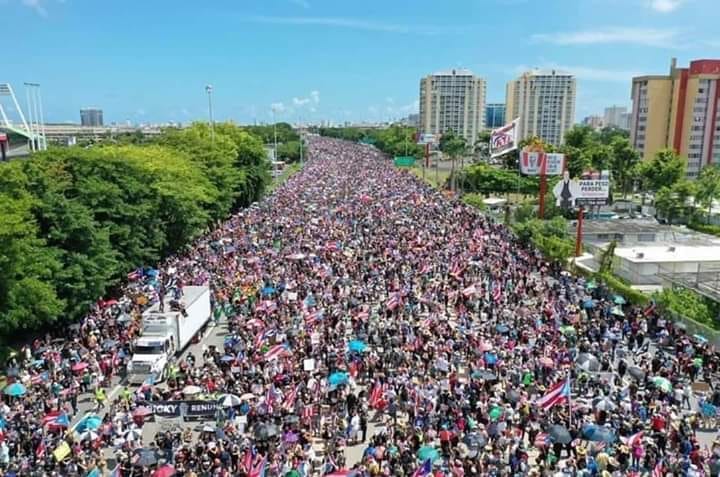
this wasn't just about offensive texts. it was the culmination of years of corruption, mismanagement, and colonial neglect.
the protests succeeded in forcing rosselló's resignation, but more importantly, they awakened a new sense of political engagement among puerto ricans, especially the youth.
beyond traditional politics: new voices and movements
the energy from the ricky renuncia protests has transformed puerto rican politics:
rise of new political parties: movimiento victoria ciudadana and proyecto dignidad challenge the traditional ppd-pnp duopoly
increased youth engagement: voter registration drives target young voters, bad bunny has very recently made a huge difference on this subject… not to mention the tiktok trend sampling “sacala” by hector el father, a reggaeton classic. (see tiktok below.)
art as activism: collectives use public spaces to spark conversations about decolonization
diaspora mobilization: organizations lobby congress for action on puerto rico's status through organizations like bud (boricuas unidos en la diaspora) and others.
the status debate: statehood, independence, or something else?
the future of puerto rico's political status remains hotly debated:
statehood
pros: full representation in congress, participation in presidential elections
cons: potential loss of cultural identity, opposition from mainland politicians
independence
pros: full sovereignty, ability to shape puerto rico's destiny
cons: economic uncertainty, potential loss of u.s. citizenship
free association
pros: maintains close ties with u.s. while gaining more autonomy
cons: details of arrangement unclear, may not fully resolve status issue
enhanced commonwealth
pros: attempts to improve current arrangement
cons: seen by many as perpetuating colonial relationship
two major hurdles stand in the way of resolving puerto rico's status:
congressional inaction: despite multiple referendums, congress has failed to take decisive action on puerto rico's status.
the insular cases: these racist supreme court decisions from the early 1900s created the doctrine of "unincorporated territories," allowing for different treatment of puerto rico under the constitution.
the path forward: challenges and opportunities
resolving puerto rico's status faces significant challenges:
political opposition: some in congress fear the impact of puerto rican statehood on the balance of power
economic concerns: puerto rico's debt crisis complicates any potential status change
cultural preservation: balancing political change with maintaining puerto rican identity
however, opportunities exist! more and more mainland americans are becoming more educated about puerto rico's situation. the youth in puerto rico is highly engaged, with a new generation of activists is pushing for change.
puerto rico's fight for self-determination is far from over. as pedro albizu campos said, "la patria es valor y sacrificio" - the homeland is valor and sacrifice. from the streets of old san juan to the halls of congress, puerto ricans continue to demand their right to shape their own destiny.
the road ahead is long and uncertain, but one thing is clear: the drumbeat of decolonization grows louder every day.
puerto rico's struggle is not just about one island – it's a test of america's commitment to democracy and equal rights for all its citizens.
pa'lante, siempre pa'lante. 🇵🇷
edgard💖✊🏽
faqs: your questions, answered
q: can puerto rico just vote to become a state?
if only it were that simple. while we've held several referendums, the power to admit new states lies with congress. we can vote until the coquís come home, but without congressional action, we're stuck in limbo.
q: how has promesa really impacted everyday puerto ricans?
imagine having a bunch of bankers and business leaders suddenly in charge of your budget. that's promesa. closed schools, slashed pensions, and public services stretched thinner than the last piece of lechón at a family party.
q: how can stateside puerto ricans support the island?
stay loud, stay proud, stay informed. vote for candidates who prioritize puerto rican issues. support our businesses and artists. never let anyone forget we're american citizens deserving equal rights. agitate for your u.s representatives and senators to actually do something in congress. tell everyone you know about it. become an activist yourself!
q: what would decolonization actually look like for puerto rico?
that's the million dollar question. statehood? independence? free association?
whatever form it takes, it's about puerto ricans finally having the power to chart our own course. and it's long overdue.
p.s. if this deep dive lit a fire in your soul, fan those flames. share this knowledge, spark these conversations. because the first step towards change is awareness, and the second is action. together, we can write the next chapter of puerto rico's story – and make it one of justice, dignity, and true self-determination.
check out the previous deep dive episodes: (5) puerto rico's quest for political status | (4) puerto rico's economic exploitation and migration | (3) puerto rico in the 20th century | (2) the colonization of puerto rico | (1) the start of the series!



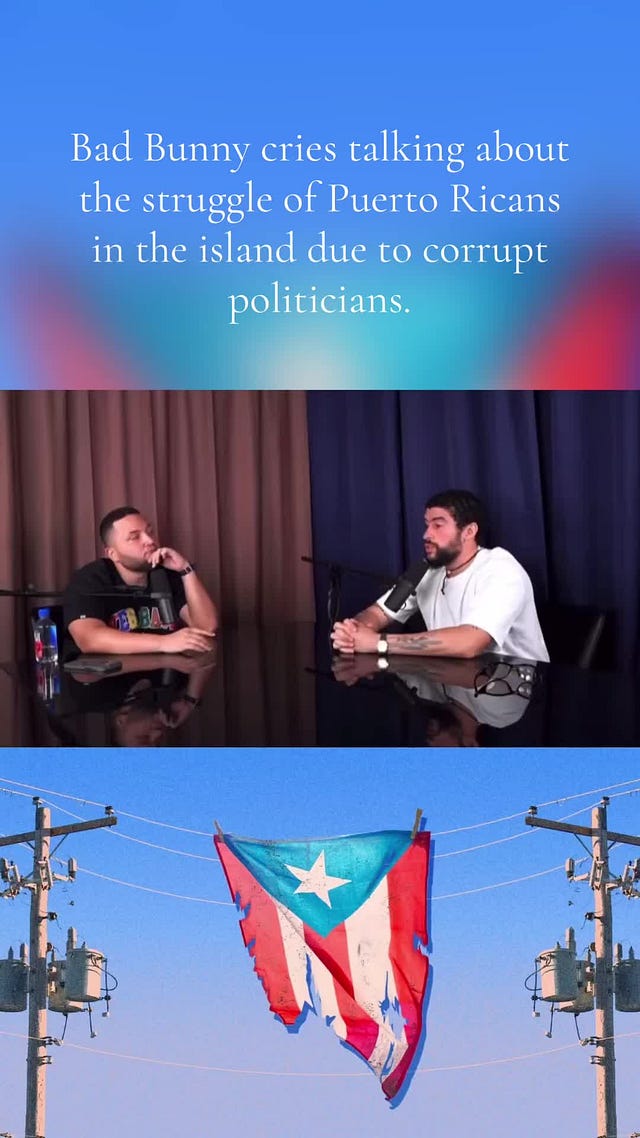


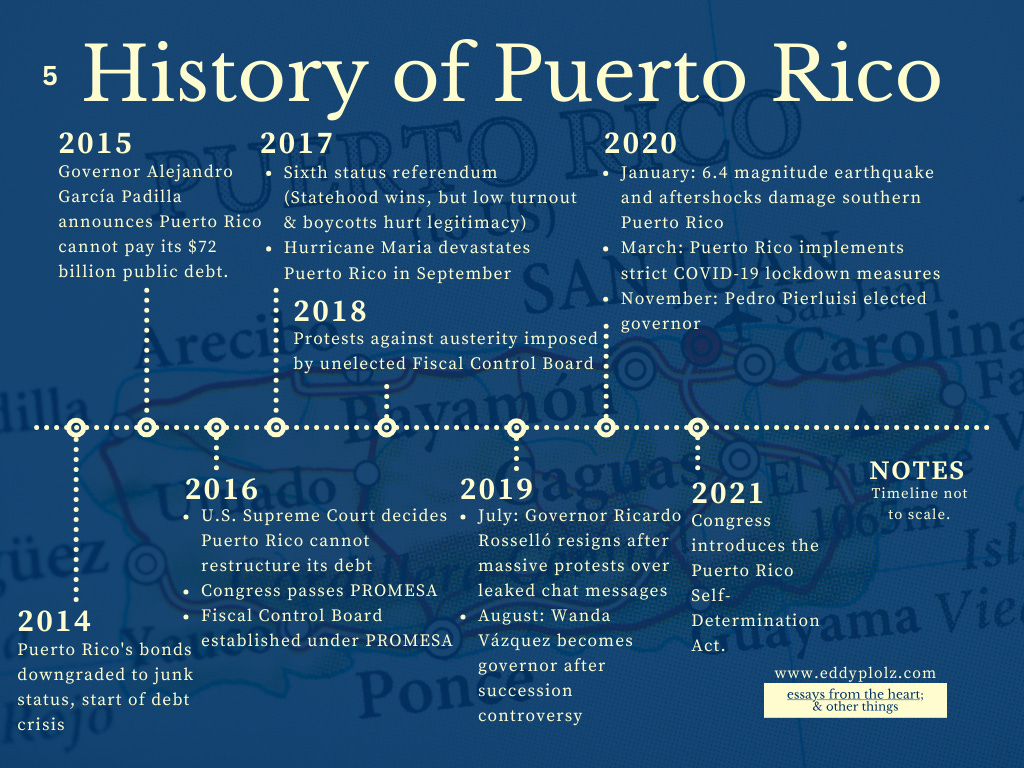

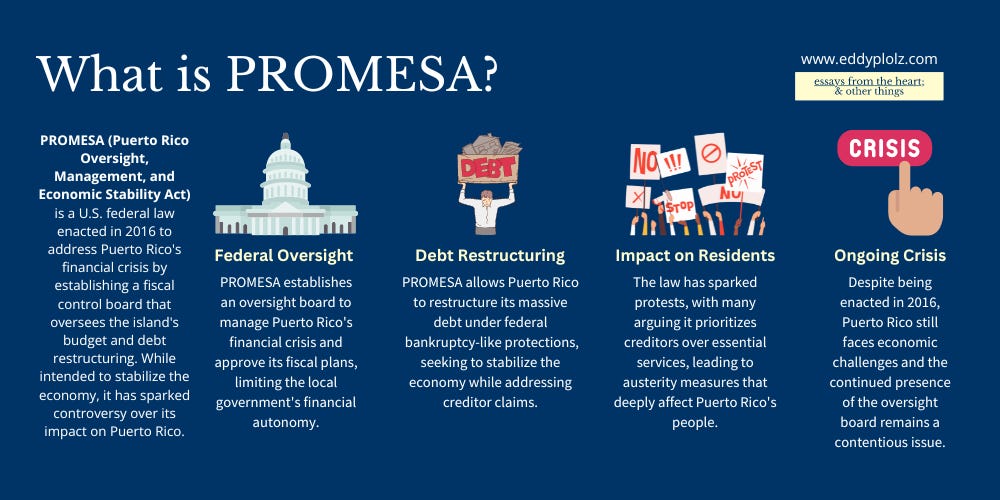

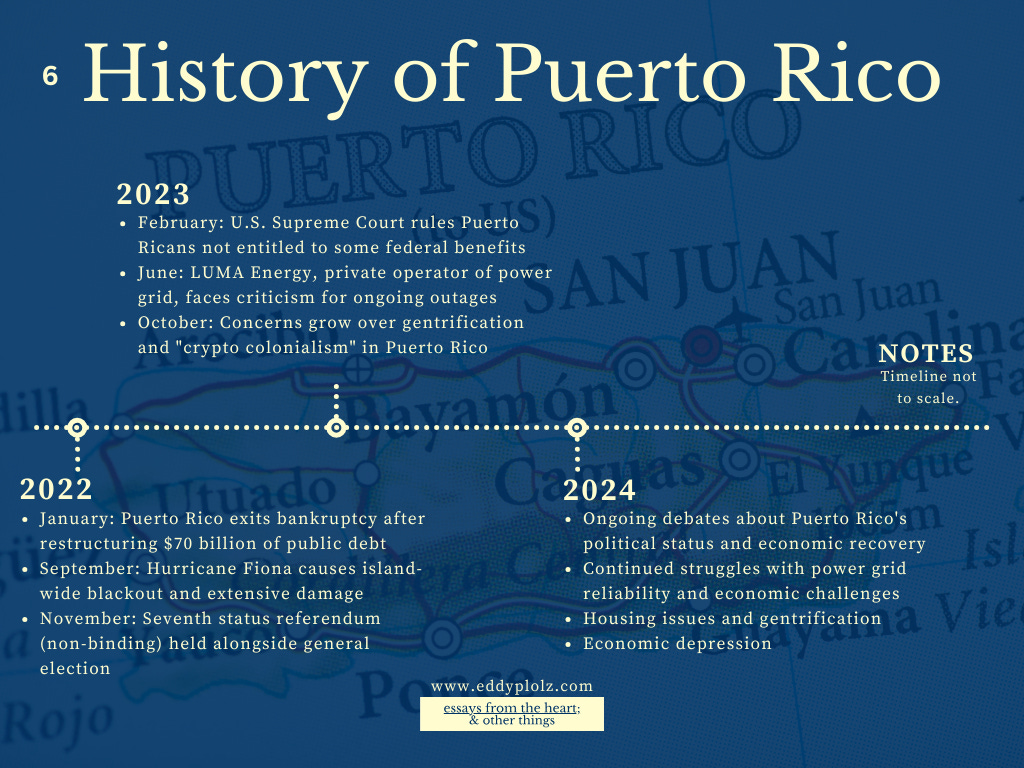
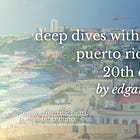
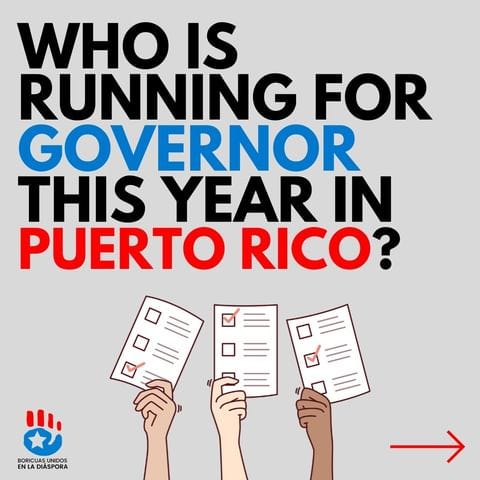
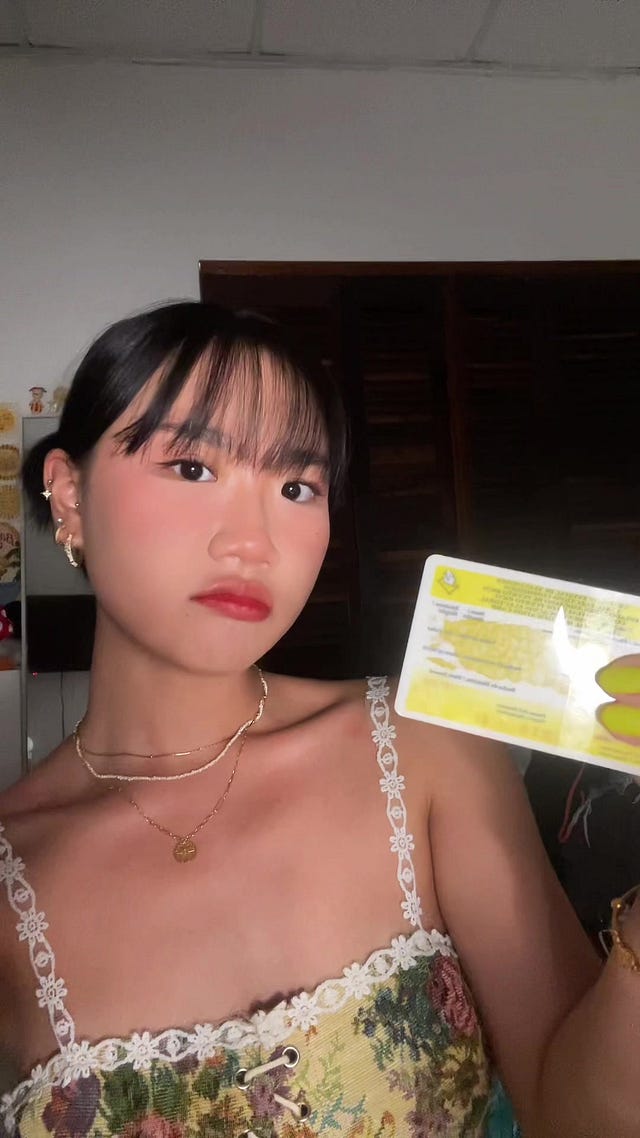

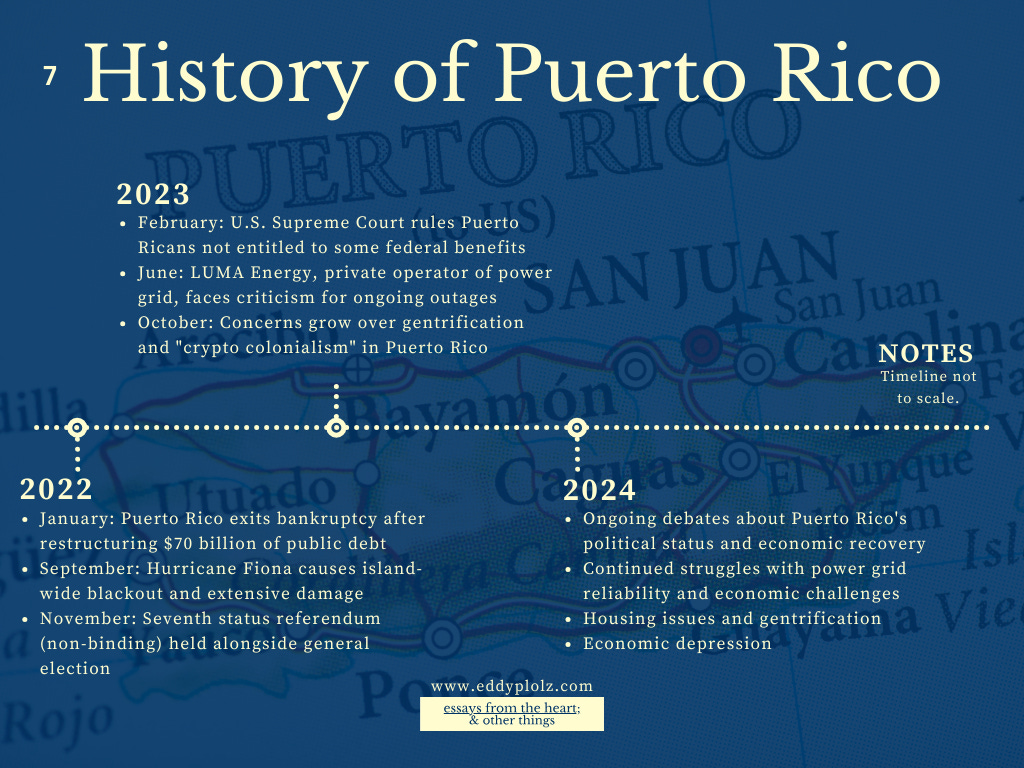


thank you for writing this and thank you for recommending the book about the history! (finished it, but def need to relisten bc it was so informative) as a someone who studied international relations i’m genuinely embarrassed i knew so little about puerto rico up until relatively recently. thank you for sharing your knowledge, experiences, and perspective - they are important!!!